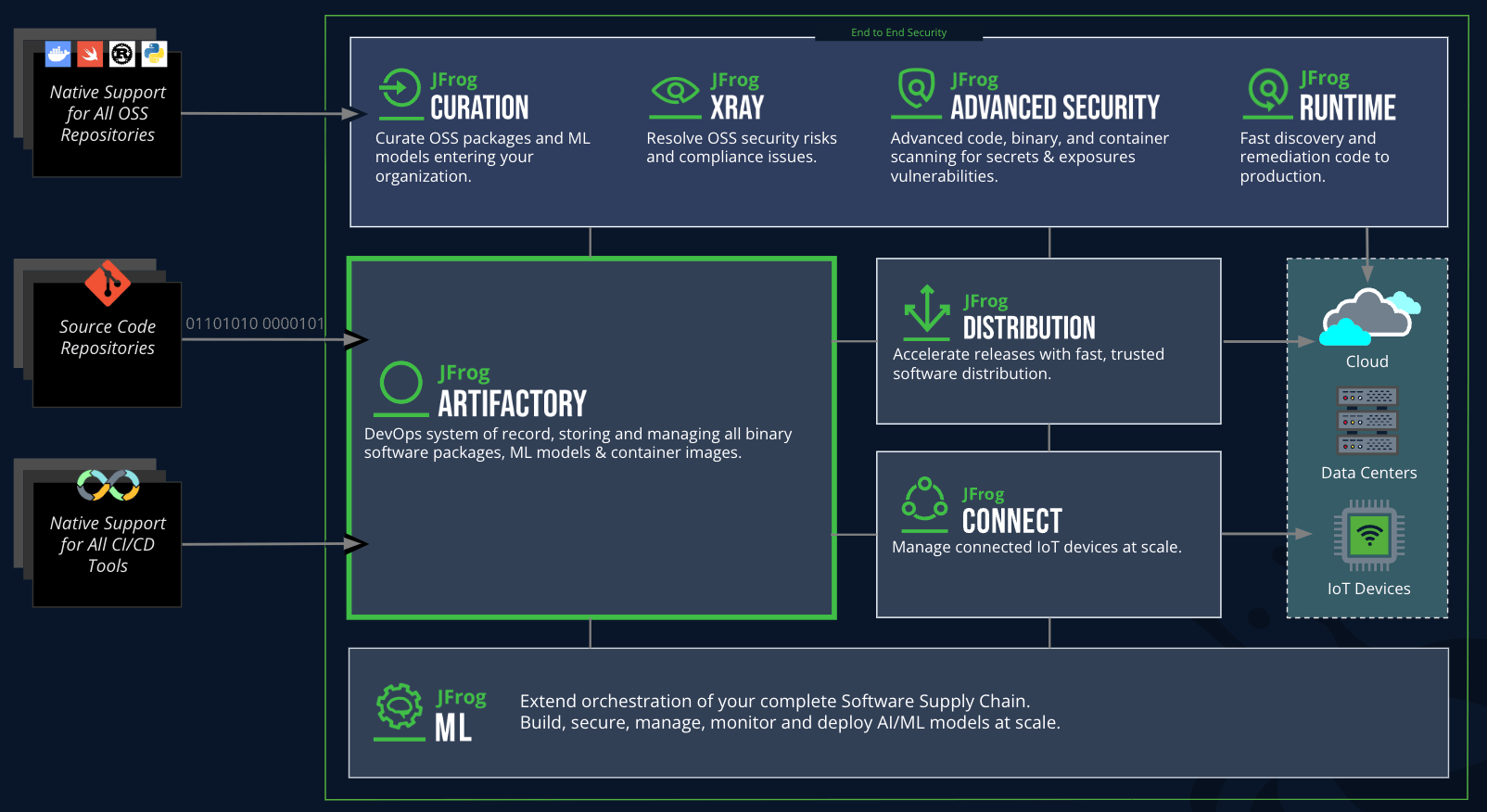helping to deliver secure software updates from code to the edge.
You have been redirected to the JFrog website


To configure SBT to use JFrog Artifactory, you can add the following lines to your build.sbt file:
resolvers += “Artifactory” at “https:///artifactory//”
Replace with your Artifactory server URL and with the appropriate repository name.
To publish artifacts, add the following settings to your build.sbt:
publishTo := Some(“Artifactory” at “https:///artifactory//”)
credentials += Credentials(“Artifactory Realm”, “”, “”, “”)
Replace placeholders with your specific details. When you run sbt publish, your artifacts will be sent to the specified repository in Artifactory.
To manage dependencies, use the standard SBT dependency syntax in your build.sbt file while ensuring Artifactory is configured as a resolver. For example:
libraryDependencies += “com.example” %% “my-library” % “1.0.0”
SBT will look for the specified library in the configured Artifactory repository, resolving the dependencies accordingly.
SBT needs valid credentials that provide access to the specified repositories in Artifactory. You can store these credentials in your ~/.sbt/1.0/global.sbt file or specify them directly in your build.sbt:
credentials += Credentials(“Artifactory Realm”, “”, “”, “”)
Ensure that you replace the placeholder values with actual information.
Yes, SBT can resolve snapshot versions from JFrog Artifactory. Ensure you have a separate repository for snapshots in Artifactory, then add it to your resolvers in build.sbt:
resolvers += “Artifactory Snapshots” at “https:///artifactory//”
SBT will resolve dependencies from the specified snapshot repository accordingly.